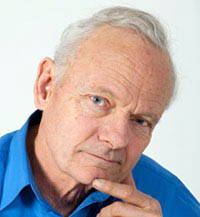Learning to Think Scientifically
By Dr. Arthur Robinson
Printed in Practical Homeschooling #13, 1996.
 Dr. Arthur Robinson explains why you need math to do real science and how to detect "pretend science" courses.
Dr. Arthur Robinson explains why you need math to do real science and how to detect "pretend science" courses.

|
 |
 It is essential that each homeschool provide a good foundation in science. Although most children will not become scientists or engineers, science and technology play such an important part in the modern world that adults who cannot think logically and effectively about these subjects are at a significant disadvantage. Each person needs to be able to distinguish propaganda from truth, logic and reason from irrationality, and wisdom from foolishness in order to be an effective citizen and to avoid being misled by those who would exploit his ignorance to his own disadvantage and that of his family and others for whom he may be responsible.
It is essential that each homeschool provide a good foundation in science. Although most children will not become scientists or engineers, science and technology play such an important part in the modern world that adults who cannot think logically and effectively about these subjects are at a significant disadvantage. Each person needs to be able to distinguish propaganda from truth, logic and reason from irrationality, and wisdom from foolishness in order to be an effective citizen and to avoid being misled by those who would exploit his ignorance to his own disadvantage and that of his family and others for whom he may be responsible.
The language of science is mathematics. Until a student has learned mathematics through calculus, which can easily be done by ages 14 to 16, he or she is not ready to study science. (The nine Saxon Math books starting with Math 5/4 and extending through Calculus are excellent for this - if they are used in a self-teaching manner.) Until that time, curiosity about scientific subjects should be an extracurricular activity, which is not included in the formal academic hours of each day. If the child shows a curiosity about ants, by all means get him the best books about ants - even very technical books - and encourage his study. Let him choose his interests in the natural world, and then encourage those interests as hobbies or play.
"Pretend" Science is not Science
Some people use a different method. They publish, for example, physics books for children that do not depend upon a knowledge of calculus. The study of physics always begins with the study of Newtonian mechanics, since this is the simplest subject in physics and is also of fundamental importance. Most of our technology depends in some way upon Newtonian physics. (Shortly after the first Apollo rocket took off for its trip to the moon, someone in ground control asked the pilot, "Who is driving that thing?" The astronaut's immediate answer was, "Isaac Newton.")
Yet, when Isaac Newton invented mechanics, he also simultaneously invented calculus. He did this because he could not solve mechanics problems without calculus. If Isaac Newton could not do this, how does one expect a homeschooled child to do it? The answer is that he cannot do it - he can only pretend to do it with physics problems that have been artificially contrived to encourage this pretense. Since modern chemistry depends upon physics and modern biology depends upon both physics and chemistry, an education in any of these three subjects that is built upon pretended knowledge may be worse than no education at all.
What is the Parent's Role?
First, provide excellent books, a good study environment, and a daily schedule conducive to good study habits - and then get out of the way! Academic knowledge is in books. Anyone or anything that gets between the student and his books is likely to slow the transfer of that knowledge into his brain.
Second, and most important of all, set a good example. Children learn primarily by example. If your idea of recreation is watching television, why do you expect your child to prefer reading? If you do not think logically, why should he? If you sometimes indulge in expedient lies, why should he value the truth?
Science and mathematics consist of certain truths that people have discovered about the world and universe which the Lord created - simple truths that are within the limited abilities of the human mind to comprehend. They have allowed mankind to see and enjoy aspects of the Lord's creations that were not visible to earlier generations, and they have made possible technology that increases the quality and quantity of human life. If your children learn to self-learn these subjects, they will continue to do so throughout their lives and, in so doing, will be able to improve their own lives and the lives of those around them.